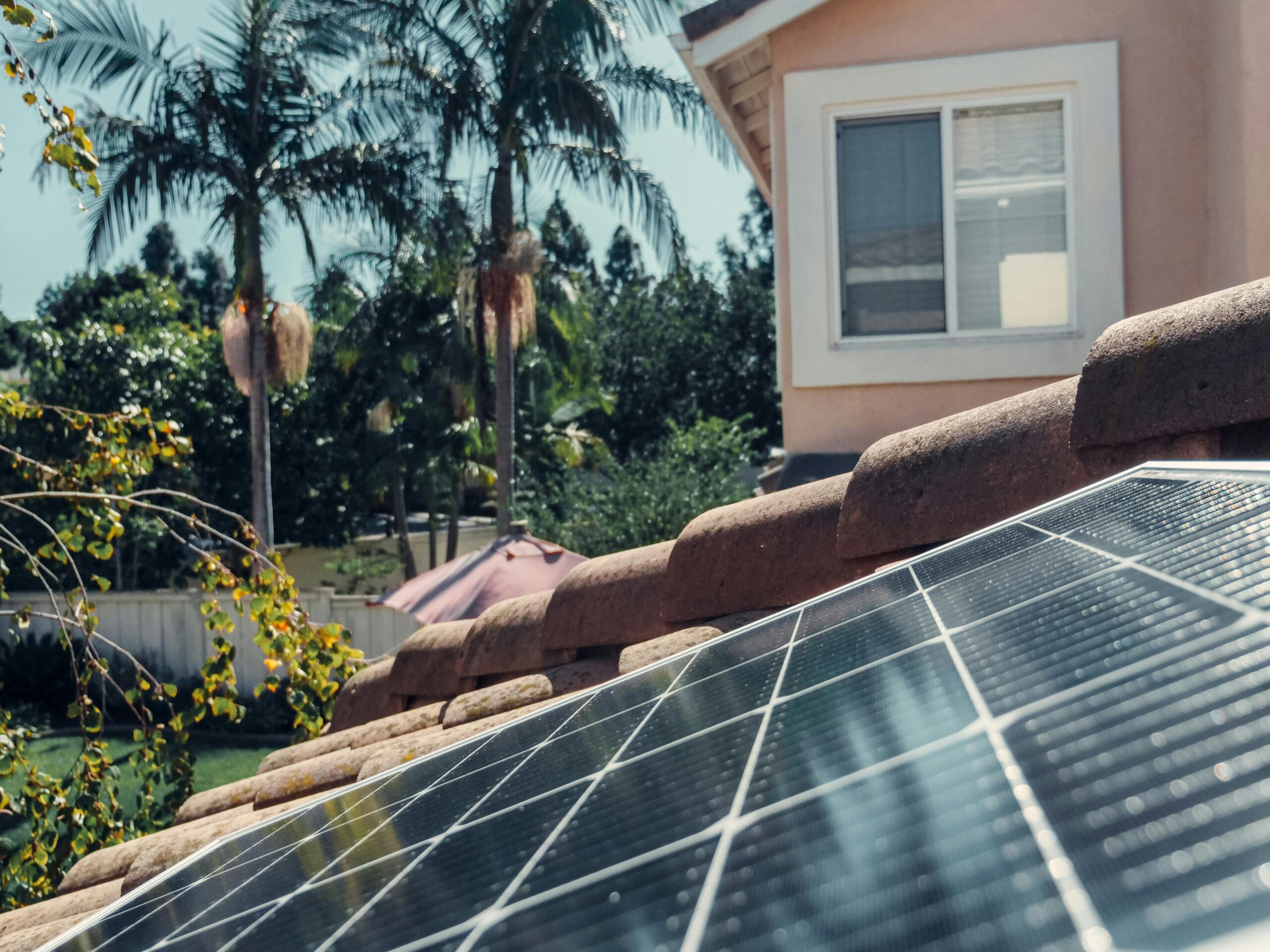
- Insurance
-
-
Most Popular
-
-
- Investing
-
-
Most Popular
-
Best Of
-
-
- Banking
-
-
Best of
-
Banking Reviews
-
Explore More
-
-
-
- Loans
-
-
Most Popular
-
Explore more
-
-
- Credit Cards
- Reviews
- Making Money
Sky-High Energy Costs: Why Is My Electric Bill So High and How to Reduce It
Seeing a high electric bill can be alarming, and you might wonder, “why is my electric bill so high?” The cause might be excessive use, inefficient appliances, or varying energy prices. This article unpacks these reasons and offers strategies to slash your costs.
Written by:
Key Takeaways
- Shaving your power bill down is all about understanding the main culprits: your usage habits, guzzling old appliances, and the ebb and flow of utility rates.
- Getting savvy with smart tech like energy-efficient bulbs, strategically timed dishwasher cycles, and insulation can make a surprising dent in your monthly bill.
- Join the green league by going solar – with tax credits and rebates, it’s not just for the eco-elite anymore. Plus, small shifts like unplugging unused gadgets help keep your wallet happy.
Table of Contents
Decoding Your Power Bill: Understanding the Surge
The sudden surge in your abnormally high electric bill can be traced back to three factors: increased energy usage, inefficient appliances, and fluctuating utility rates. It may sound complicated, but we will simplify it for you, beginning with an analysis of our energy consumption habits, the cost of comfort, and the puzzling realm of utility rate fluctuations, all in the context of your average monthly electric bill. By understanding these factors, you can take steps to reduce your high electric bills and save money in the long run.
Energy Consumption Habits
We all love the convenience of flicking a switch and basking in the comforting glow of a light bulb or feeling the cool breeze of a fan on a hot day. But these everyday luxuries come at a price. Every light left on, every fan spinning in an empty room, and every unused appliance plugged into a socket contributes to your electricity bill. It’s all about habits – the more energy we consume, the higher the bill.
So, what can we do about it?
- Turn off lights when you leave a room
- Unplug appliances when they’re not in use
- Use energy-efficient light bulbs
- Set your thermostat to a reasonable temperature
- Use natural light whenever possible
- Use fans instead of air conditioning
- Use power strips to easily turn off multiple devices at once
By adopting these habits, you can save money by reducing your energy consumption and lowering your electricity bill.
The answer resides in fine-tuning our daily routines. Minor modifications, such as switching off lights when exiting a room or disconnecting appliances when idle, can significantly impact your energy consumption. Keep in mind that every kilowatt-hour is important!
The Price of Comfort
Who doesn’t love the cozy warmth of a heated room in winter or the cool relief of air conditioning in summer? But this comfort comes at a cost. Heating and cooling typically consume the lion’s share of electricity in a home, significantly contributing to your energy costs. But what if there was a way to stay comfortable without breaking the bank? Enter the heat pump, a marvel of modern technology that efficiently heats and cools your home with one HVAC system. By investing in efficient systems like heat pumps, you can enjoy your creature comforts and still keep your electricity bills under control. It’s all about finding that perfect balance of comfort and cost.
Utility Rate Fluctuations
Just as the seasons change and global events unfold, so do utility rates fluctuate. Ever notice how your electricity bill shoots up during extreme weather conditions or how it seems to vary from one month to the next? That’s because electricity rates are influenced by a wide array of factors, including:
- Location
- Season
- Global happenings
- Regulatory changes
Utility companies adjust their rates based on these factors, sometimes to recover costs associated with maintaining and expanding the electric grid. It’s a complex dance of supply and demand, global events, and market forces, all playing out on your monthly bill. But fear not, as we’ll explore later, there are strategies to navigate these fluctuations and even turn them to your advantage.
Implementing Energy Efficiency: Smart Choices for Your Home
Having unraveled the causes for your electricity bill’s surge, it’s time to delve into potential solutions. A primary approach is energy efficiency. By making smart choices about the appliances and systems we use in our homes, we can significantly reduce our energy usage and bills.
Where should we begin? We should examine more thoroughly energy-efficient appliances, lighting, and insulation improvements.
Investing in Energy Efficient Appliances
Remember that old refrigerator humming away in your kitchen or the washer and dryer that have seen better days? Old, inefficient appliances are often energy guzzlers, contributing significantly to your electricity costs. But there’s an easy fix. By upgrading to energy-efficient appliances, you can slash your energy usage and lower your electric bill.
When shopping for appliances, be sure to look for the ENERGY STAR label. This indicates that the appliance is energy efficient. These appliances are designed to use less energy and water, leading to substantial long-term savings. For instance, did you know that water heating accounts for about 18% of a home’s energy use? By choosing an energy-efficient water heater, you can make a significant dent in your electricity bill.
Lighting the Way to Savings
Another area where savings can be made is lighting, which deserves our attention. Did you know that replacing incandescent bulbs with LED lighting can save around $225 per year? And it’s not just about switching to energy-efficient bulbs. You can also save by using lighting more strategically, providing light where it’s needed most and turning off lights when not in use.
Consider installing dimmer switches to adjust brightness and reduce electricity usage. Also, switching out just five light bulbs for ENERGY STAR bulbs can save you $75 per year. So, illuminate your home wisely and watch those savings add up.
Insulation Upgrades
A well-insulated home is like a thermos, keeping the heat in during winter and out during summer. But poor insulation can lead to energy loss, causing your heating and cooling systems to work overtime and your electric bills to soar. The solution? Insulation upgrades.
By beefing up insulation and sealing drafts, you can maintain a consistent indoor temperature and reduce energy costs. Consider conducting a home energy audit to identify areas of energy loss and get recommendations for efficient fixtures and repairs. Remember, a well-insulated home is not just comfortable but also cost-efficient.
Strategic Energy Use: Timing and Technology
Having discussed energy efficiency, it’s time to transition to strategic energy use. Are you aware that the timing of your electricity usage can considerably impact your bill? By adjusting our energy consumption to off-peak hours and harnessing the power of technology, we can lower our energy costs.
We’ll uncover how this works in the following segments.
Peak Hours and Your Power Bill
Just like rush hour traffic, there are peak hours for electricity usage. These are typically the times when most people are at home, using appliances, and demand for electricity is high. During these peak hours, electricity costs can spike, leading to a higher electric bill.
But here’s the good news. Some utility companies offer lower rates during off-peak times, usually early in the morning or late at night. By shifting some of your electricity usage to these off-peak hours, you can save on your electric bill. Simple actions like running your dishwasher or washing machine during off-peak times can add up to significant savings.
Tech-Savvy Solutions
In our digital age, technology offers a plethora of solutions to manage and optimize our energy usage. One such innovation is the smart thermostat. By improving your HVAC system’s efficiency, a smart thermostat can lead to significant cost reductions on your energy bills. How does it work? By adjusting the temperature when you’re asleep or away, a smart thermostat can lower your heating and cooling costs by around 10%.
But the tech solutions don’t stop there. Smart plugs and timers can automatically control power to your devices, turning them off when idle, and cutting down on unnecessary energy consumption. It’s like having a personal assistant managing your home’s energy usage. Now that’s smart!
Negotiating Your Way to Lower Rates
We’ve covered comprehending your energy bill, making energy-efficient decisions, and using energy strategically so far. But what if there was a way to reduce your electricity rates? Yes, you heard that right. With a little negotiation and comparison shopping, you could secure a better deal on your electricity rates.
Let’s discover the ways to achieve this.
Dialogue with Your Provider
The first step to lowering your electricity rates is to have a conversation with your provider. Ask open-ended questions, be persistent, and don’t be shy about asking for a lower rate. Remember, your provider wants to keep you as a customer, and they might be willing to offer you a better deal to do so.
Know your facts. Being aware of competitor rates can give you an edge in negotiations. And if your initial request for a lower rate is met with resistance, escalate the conversation to a supervisor. Sometimes, a little persistence can go a long way in lowering your electric bill.
Comparison Shopping
If negotiation doesn’t yield the results you were hoping for, it might be time to try comparison shopping. In energy choice states, consumers can compare electricity prices and choose the plan that best fits their needs. Websites like PA Power Switch can assist in comparing electric suppliers, potentially leading to lower rates and more favorable contract terms.
Switching to a new supplier can be an alternative if your current provider isn’t willing to budge on rates. Remember, competition is a good thing, and it’s there for your benefit. So, explore your options, compare rates, and choose the best deal for your energy needs.
Harnessing Renewable Energy to Offset Costs

Looking forward to a more sustainable future, renewable energy presents an optimistic approach to counterbalance electricity costs. By installing solar panels or subscribing to a community solar farm, you can reduce your dependency on traditional energy sources and lower your electric bill. But how does it work, and what are the benefits?
Let’s delve into the realm of solar power.
Solar Power as a Solution
Imagine a world where you generate your electricity, right at home. Well, with solar power systems, this is possible. Solar panels allow you to generate electricity directly at the point of consumption, potentially eliminating the need to draw power from the grid.
But what does this mean for your electricity bill? In simple terms, the more electricity you generate and use from your solar panels, the less you need from your electricity provider, which can lead to significant savings on your electricity bill. Talk about power to the people!
Incentives and Rebates
If the cost of installing solar panels seems daunting, don’t worry. There are various incentives and rebates available that can reduce the cost of installation. Homeowners installing solar panels may be eligible for a federal tax credit, which significantly reduces the cost of installation.
But the benefits don’t stop there. Certain energy storage devices installed alongside solar panels also qualify for the federal solar tax credit. Plus, many states offer additional incentives such as rebates or extra tax credits for solar energy. With these incentives, going solar can be more affordable than you think.
Small Changes, Big Impact: Everyday Energy-Saving Tips
As we near the conclusion, let’s reflect on the core principle of energy savings – minor modifications that yield significant results. From unplugging electronics and maintaining appliances to making the most of natural temperature control, there are countless ways to save energy in our everyday lives.
So, let’s explore these straightforward but impactful energy-saving tips.
Unplugging Electronics
Did you know that your TV, computer, and other electronics consume power even when they’re not in use? This is known as standby power consumption or phantom energy, and it can account for roughly five to 10 percent of a home’s energy usage. That’s like having a small energy vampire in your home, silently sucking up energy and contributing to your electric bill.
But fear not, the solution is simple: unplug. By unplugging electronics when they’re not in use or using smart power strips that automatically cut power when devices are in standby mode, you can reduce standby power consumption and save on your electric bill. So, remember to pull the plug on phantom energy.
Efficient Appliance Use
Your appliances are the workhorses of your home, tirelessly providing heat, light, and comfort. But without proper maintenance, they can become less efficient and more expensive to run. Regular maintenance of appliances, like cleaning coils and changing HVAC filters, can keep them running efficiently and reduce energy costs.
Additionally, using appliances optimally can lead to significant energy savings. For instance, running dishwashers and washing machines only when full ensures they operate at full efficiency, avoiding unnecessary additional cycles that consume extra energy. So, take good care of your appliances, and they’ll take care of your electric bill.
Summary
Through this journey, we’ve decoded the factors behind high electricity bills, explored energy efficiency, delved into strategic energy use, learned negotiation tactics for lower rates, harnessed the power of renewable energy, and discovered everyday energy-saving tips. The road to lower energy costs may seem daunting, but with the right knowledge and strategies, it’s entirely achievable.
Remember, every little change adds up. Whether it’s turning off a light, unplugging a charger, or installing solar panels, each step brings you closer to a lower electricity bill and a more sustainable future. So, armed with this knowledge, go forth and conquer your energy costs!
Quick Questions
Your electricity bill may be high due to increased energy usage, inefficient appliances, or fluctuating utility rates. Consider evaluating your energy consumption and updating your appliances for potential savings
To reduce your energy consumption, you can change your daily routines, turn off lights and appliances when not in use, and invest in energy-efficient appliances. This will help you save on your energy bills and reduce your environmental impact.
Peak hours are times when electricity costs are higher due to increased demand, usually in the evening. Avoid using high-energy appliances during these times to save on electricity bills.
You can negotiate a lower electricity rate by knowing competitor rates, asking open-ended questions, and being persistent with your provider. Good luck!
By generating your own electricity, solar panels reduce your dependency on traditional energy sources and can potentially eliminate your need to draw power from the grid. This can result in a significant reduction in your electricity bill.

Join the MoneyMash community!
Sign up to get the latest personal finance news.
© 2025 MoneyMash an Element Road, LLC Company.
MoneyMash is an independent, advertiser-supported site. We may receive compensation when you click to apply for some products using the links that you find on our website. Opinions presented on our website are those of MoneyMash or our team of writers and reviewers who post their own opinions. For more information, please read the full disclosure.
